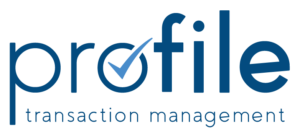Improve Operational Efficiency To Make More Short- & Long-Term Profits
Building a better mindset and expense management protocols are the precursors to broader organizational overhaul. That’s because finding ways to improve operational efficiency is (1) a critical part of good expense management, anyway; (2) necessary to successfully selling real estate in a shift market; and (3) the “unintended gift of the shift.” Finding the right leverage will help you grow your business.
That is, the most successful strategies to sell real estate during COVID-19 or any other shift market — by creating a more productive, agile, lead business — naturally lead to organizational changes that benefit the firm. This can include staffing changes, vendor contract renegotiations, and adoption of new and different processes/protocols/technology, for example. Each of these organizational improvements helps you to sell more houses during rapid, temporary local market shifts, prepare you for long-time-coming and longer-lasting national market shifts, and will also maximize your profitability as the market rebalances and moves back into stable conditions.
Wait… What Does “Leverage” in real estate Even Mean?
For the purposes of learning how to sell real estate in a shift market — especially if you’re learning how to sell real estate during COVID-19 — general leverage is the ability to influence a system (your business) in a way that multiplies the outcomes of your efforts without causing a corresponding increase in expenses or resources consumed.
While leverage can, sometimes, require accumulating a literal debt to gain this kind of influence, what we’re talking about here involves something of a metaphorical debt. In reducing staffing, changing vendor contracts, or adopting/disavowing protocols and pieces of technology, you aim to resolve a “resource debt.” To do this, you topgrade people (first) and upgrade systems to support your people (second).
On Resource Debts In Real Estate
Broadly speaking, a “resource debt” happens when either poor resource management or a rapid change in market conditions makes rates of resource consumption unsustainable. For real estate in a shift market, the industry ecosystem changes in such a way that resources (money, human capital, your time and energy) are being used faster than they’re replenished or in a way that is yielding a diminishing return.
Smart Businesses Improve Operational Efficiency Ratio To Sell More Houses, Better
The operational efficiency ratio of your business shows how much of your resources you spend on each sale. Leveraging organizational changes to reduce your resource debt will give you a much improved operational efficiency ratio. This signals that your profitability isn’t just protected by your expense and resource management as you learn how to sell real estate in a shift market; a low operational efficiency ratio is a good predictor of scalability, meaning your profits will grow exponentially as you sell more houses moving through an out of the market shift.
The Best Questions To Ask To Help Build Leverage In Your Real Estate Business
To improve operational efficiency, you have to have some very realistic, straightforward conversations with yourself, your staff, and your vendors (mortgage/loan officers, for example) about what’s working to help you sell real estate in a shift market (and what isn’t). These conversations should begin by asking four basic questions and comparing your ideal answers against what’s really happening as you try to sell more houses under hard conditions. These questions include:
- What are my business priorities?
- When do they need to get done?
- Who is the best person to do them?
- How should they be done?
Understanding Which Core Competencies You Must Focus On To Sell More Houses
The thing is, when most real estate agents approach finding answers to the above questions, they focus on the lower-ROI core competencies of what they do. Given that the six core competencies of every real estate business are:
- Lead generate, capture, and convert to appointments/sales.
- Present to buyers and sellers to get agreements.
- Show buyers and market sellers.
- Write and negotiate contracts.
- Coordinate the sale to closing.
- Manage the money.
… most agents overlook number 1 as the highest-ROI activity they do (which, it follows, should be their top priority for building improved operational efficiency). The consequences of this oversight are normally manageable — sales numbers slightly lower than what’s possible and lower profits than you could have had don’t matter too much when business is going well, anyway.
When you want to sell real estate in a shift market (and be successful at it), however, these oversights prove costly and sometimes fatal to firms trying to survive by selling more houses on a foundation of poor lead and expense/resource management.
As a reminder: a “shift market” in real estate, as outlined in SHIFT: How Top Real Estate Agents Tackle Tough Times, is a market where the supply and demand for real estate have become imbalanced. That is, there is either more supply than demand or more demand than supply, and the market is in the process of healing and re-balancing itself (usually through rapid, short-term changes in property value in local markets).
Shift markets are inherently tough to navigate — and survive— as a real estate agent because they create power imbalances between buyers and sellers that make continuing with business-as-usual impossible. Top agents find ways to shift with the market. This is how.



Comments are closed.